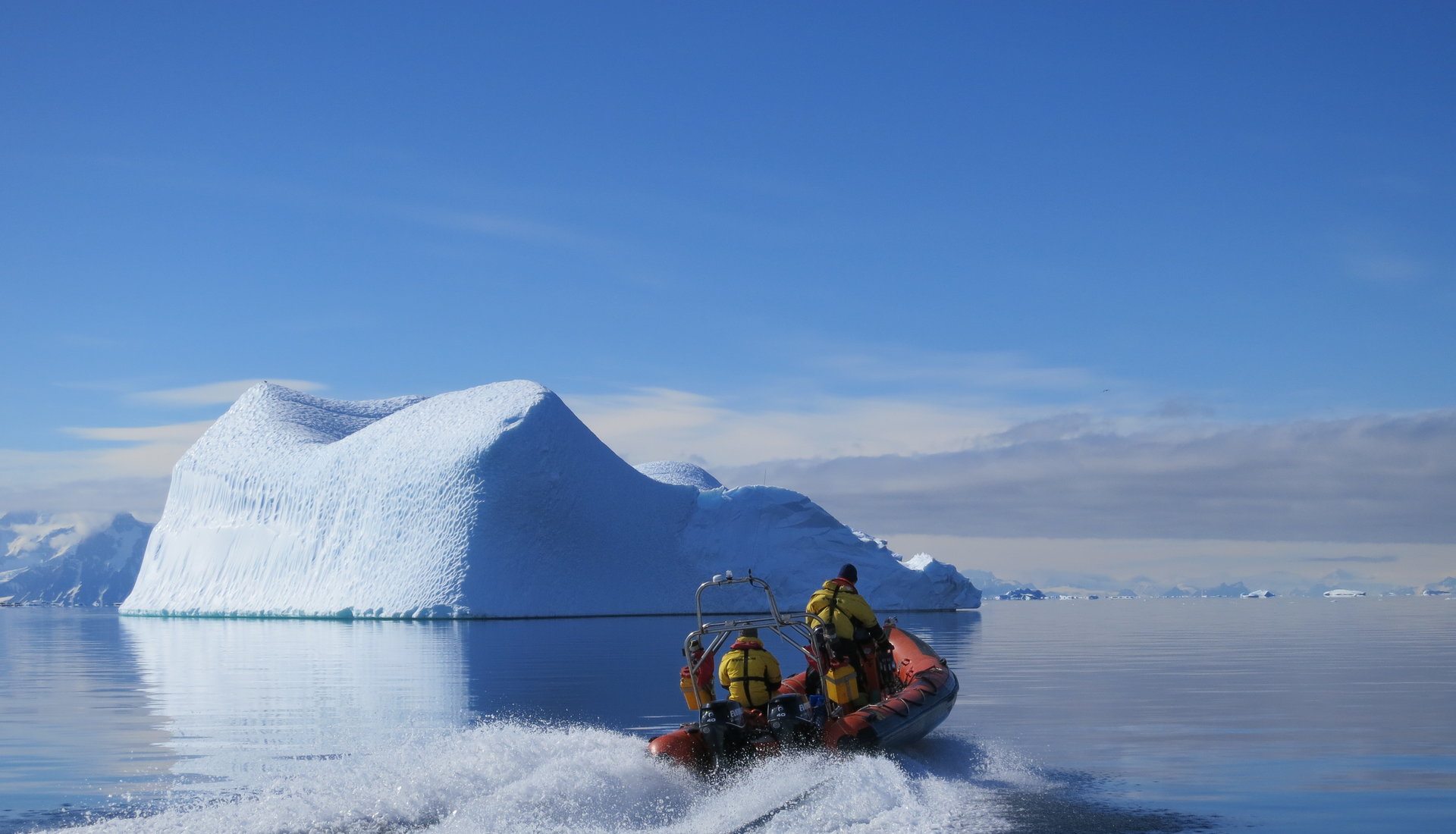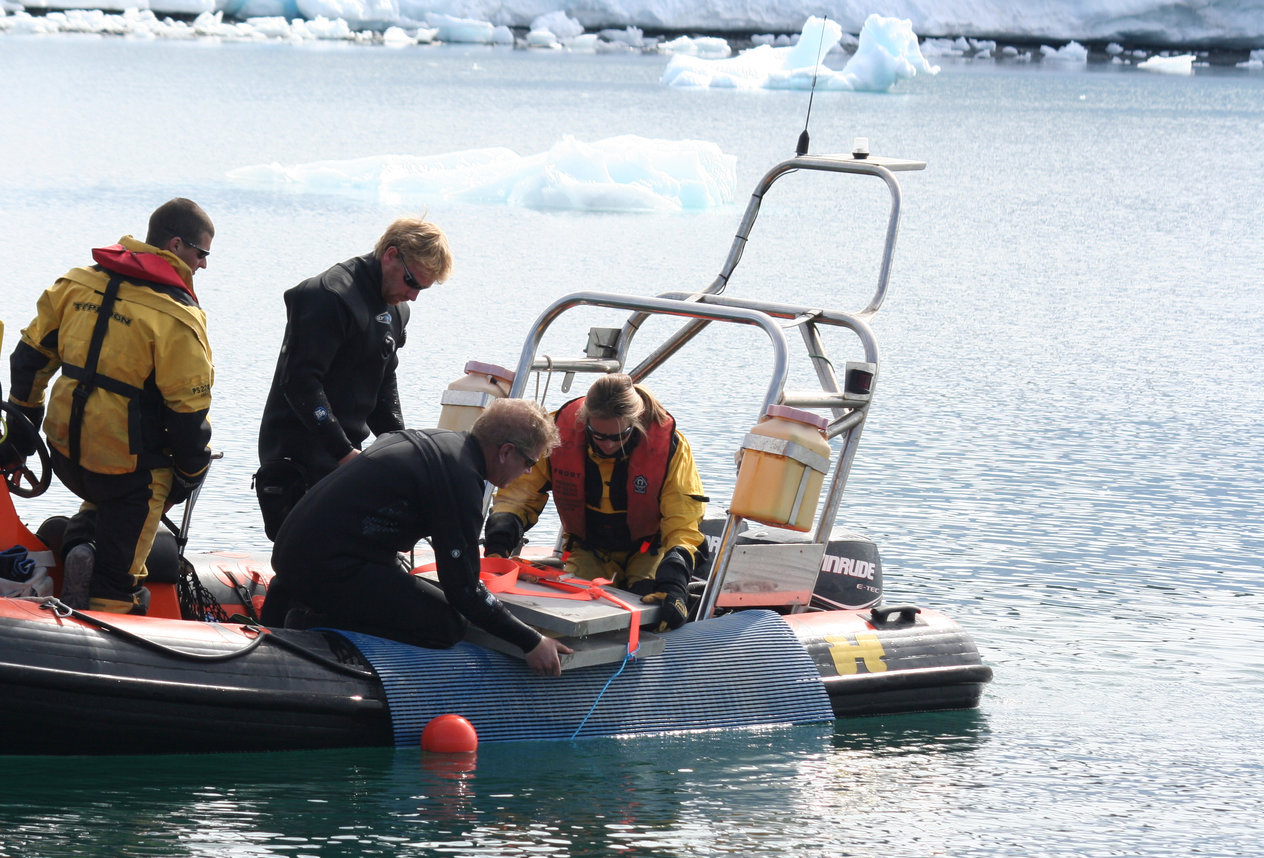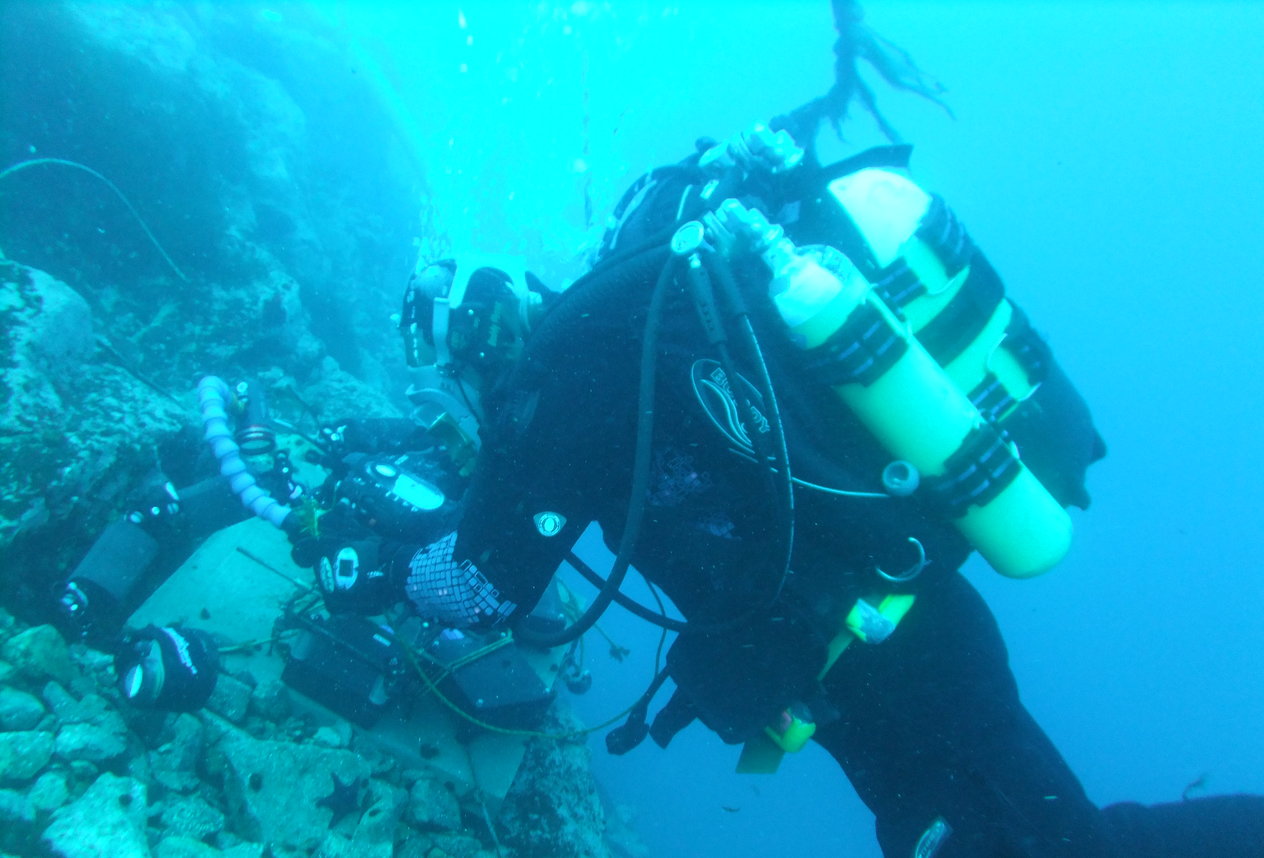
Get the world’s most fascinating discoveries delivered straight to your inbox.
You are now subscribed
Your newsletter sign-up was successful
Want to add more newsletters?
Join the club
Get full access to premium articles, exclusive features and a growing list of member rewards.
Researchers working in Antarctica found some species of marine life can double when water temperatures increase by only 1 or 2 degrees Celsius (1.8 or 3.6 degrees Fahrenheit), according to a study published today in Current Biology.
Study co-author Gail Ashton of the British Antarctic Survey and Smithsonian Environmental Research Center said the findings were a snapshot of what might happen on a wider scale if ocean temperatures continue to rise.
"It says that both globally changes are going to be quite significant, particularly in the Antarctic and possibly the same in the Arctic," said Ashton.
Funded by the Natural Environment Research Council and billing their work as the "most realistic ocean warming experiment to date," the researchers spent six years perfecting the technology to conduct their experiment, then 18 months in Antarctica.
"The tricky part is the 'how' and the infrastructure to do so," said Ashton. "Once you've came up with the design and are able to do it, the hindsight is, 'Why did we wait this long?'"
They came up with unassuming black plastic boxes that radiated a constant amount of heat between June 2014 to March 2015 in the turbulent waters near the British Antarctic Survey's Rothera Research Station, Ashton said.
The boxes looked like car batteries sitting on concrete blocks in around 50 feet of water off Adelaide Island and the Antarctic Peninsula. The researchers supplied electricity to the boxes with 100-meter cables from the shore. The work ended when an iceberg damaged the cables.
Get the world’s most fascinating discoveries delivered straight to your inbox.
In the warmer temperatures, some organisms thrived while others didn't take hold.
In 1 degree Ceclsius warmer water, so-called moss animals, or tiny invertebrate that make plant-like colonies, called Fenestrulina rugula took over the water and a marine worm called Romanchella perrieri grew 70 percent larger. In 2 degrees Celsius warmer water, the response was different according to species, the organisms' ages, and the seasons.
RELATED: Climate Change Is Causing Fish to Shrink
"In some ways doubling marine growth could be considered," said Ashton. "But it seems like a common theme among warming experts and observers is that there are definitely winners and losers. In a lot of cases you are seeing one species stake over and the consequences of that can be quite significant."
She noted that so-called hull fouling — or barnacles, animal moss, plants, and other critters attaching themselves to the bottom of boats — costs industry massive amounts of money already. That problem stands to worsen.
With the ultimate goal of testing waters in the tropics and elsewhere to see how marine life changes when temperatures rise, the team's next research will focus on the genes of the creatures in the Antarctic to determine why some prospered and others did not.
"We'll see if genes show who will be a winner or a loser in the future," said Ashton.
Originally published on Seeker.
 Live Science Plus
Live Science Plus












